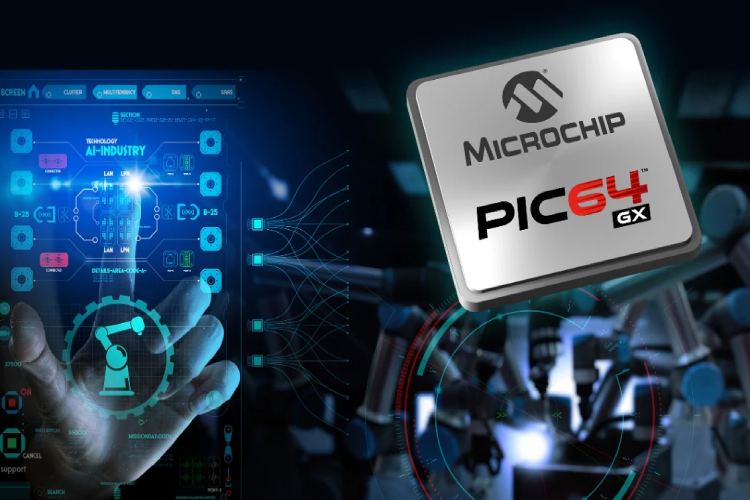New Multi-Core 64-bit MPUs Enable Intelligent Edge Designs for IoT and Aerospace

Microchip Technology introduces the PIC64 portfolio, expanding its computing capabilities to address the evolving needs of embedded systems in real-time, compute-intensive applications such as smart embedded vision and Machine Learning (ML) at the edge. The PIC64 family, starting with the PIC64GX MPUs, is designed to offer power-efficiency, hardware-level security, and high reliability across industrial, automotive, communications, IoT, aerospace, and defense sectors. These 64-bit MPUs support Linux®, real-time operating systems, and bare metal applications, featuring a quad-core RISC-V® processor with Asymmetric Multiprocessing (AMP) for heterogeneous compute solutions. The PIC64GX MPU integrates a quad-core CPU cluster, fifth microcontroller class monitor, and 2 MB flexible L2 Cache at 625 MHz, ensuring deterministic latencies and secure boot capabilities.
With pin compatibility with Microchip’s PolarFire® SoC FPGAs, the PIC64 family enhances flexibility in embedded system development, supported by Microchip’s ecosystem of tools and software for configuration, development, debugging, and embedded design qualification. Additionally, Microchip introduces the PIC64-HPSC family for high-performance spaceflight computing, designed to deliver enhanced compute performance and radiation tolerance, particularly suited for aerospace and defense applications, including NASA-JPL's initiatives for autonomous space computing.
Features:
- 64-bit RISC-V® quad-core processor
- Asymmetric Multiprocessing (AMP) capability
- Linux® and real-time operating system support
- Secure boot capabilities
- 2 MB flexible L2 Cache running at 625 MHz
- Pin compatibility with PolarFire® SoC FPGAs
- Enhanced compute performance for heterogeneous applications
- Radiation and fault tolerance for aerospace and defense
Applications:
- Smart embedded vision
- Machine Learning (ML) at the edge
- Industrial automation
- Automotive electronics
- Communication systems
- IoT devices
- Aerospace and defense technologies








